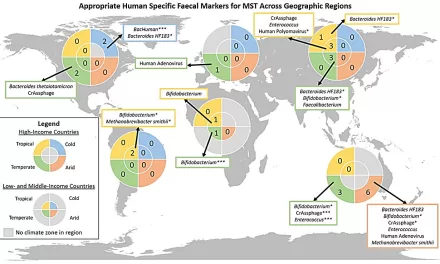A recent study published in JAMA Network Open has highlighted the significant impact of social risk factors on the likelihood of receiving preventive healthcare services, such as mammograms, Pap tests, flu and pneumococcal vaccines, and colonoscopies. The study, led by Dr. Tamara Schroeder from the University of California, Davis, analyzed data from over 82,000 individuals and uncovered key barriers that contribute to lower rates of preventive care among certain populations.
The researchers examined five preventive services: routine mammography for women aged 40 to 74 years, Pap tests for women aged 21 to 65 years, colonoscopies for adults aged 45 to 75 years, influenza vaccines for adults aged 18 and older, and pneumococcal vaccines for adults aged 65 and older. Using data from the National Health Interview Survey (2016 to 2018), they found a strong correlation between various social risk factors and decreased odds of receiving these essential services.
Key Social Risk Factors and Their Impact
The study identified two primary social risk factors: educational deficits and lack of access to healthcare. These factors were found to be consistently associated with lower rates of preventive care across all services. For instance, individuals with lower educational attainment were less likely to receive mammograms (odds ratio [OR], 0.73), Pap tests (OR, 0.78), influenza vaccines (OR, 0.71), pneumococcal vaccines (OR, 0.68), and colonoscopies (OR, 0.82). Similarly, lack of access to care significantly reduced the likelihood of receiving these services, with the odds ratio for mammograms dropping to 0.32 and for Pap tests to 0.49.
Additionally, the researchers found that each unit increase in an individual’s social risk factor count further decreased the odds of receiving preventive care. For example, the likelihood of receiving a mammogram dropped by 26%, a Pap test by 16%, and an influenza vaccine by 19% for each additional social risk factor identified.
The Call for Action
Dr. Schroeder and her colleagues emphasize the need for interventions that address these social determinants of health. “This study suggests that there is a need to address social risk factors to optimize receipt of recommended preventive services,” the authors wrote. They advocate for further research to better understand the mechanisms behind these associations and to develop strategies aimed at overcoming these barriers.
Preventive healthcare services are crucial for early detection and management of diseases, and addressing social risk factors could help close the gaps in care for underserved populations. The findings from this study highlight the importance of targeting public health efforts to ensure equitable access to preventive services for all.
Reference:
Tamara Schroeder et al, “Social Risk Factor Domains and Preventive Care Services in US Adults,” JAMA Network Open (2024). DOI: 10.1001/jamanetworkopen.2024.37492.












